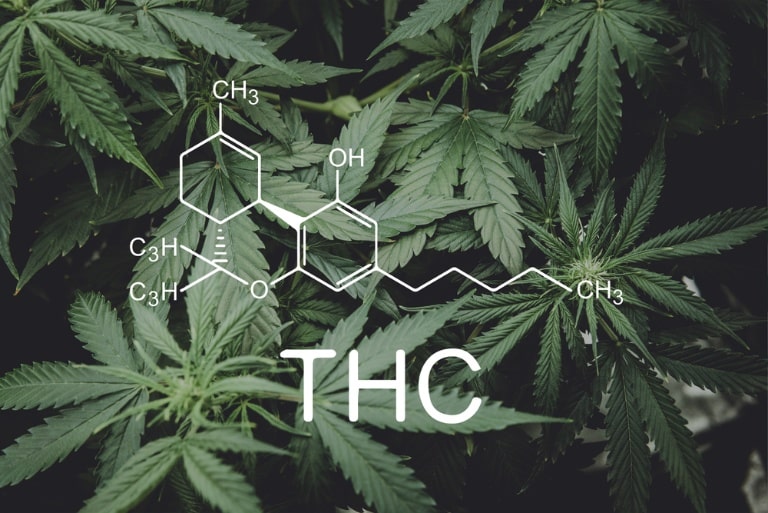Benefits and Considerations: Delta-9 THC in Everyday Use

Understanding Delta-9 THC
Delta-9 tetrahydrocannabinol is the key psychoactive compound in cannabis, responsible for most effects people associate with marijuana. In recent years, researchers have revisited this compound, using modern methods to determine its benefits and risks.
Approved medical uses involve synthetic versions, but both prescription and plant-derived formats have been studied for similar effects. Understanding the unique effects, risks, and practical guidelines for Delta-9 THC is important for anyone considering its use.
Efficacy in Pain, Sleep, and Appetite
Research supports Delta-9 THC for several medical concerns. Its main benefit is pain management, especially in long-term or nerve-related pain cases. The compound affects cannabinoid receptors in nerves and the brain, which helps lower pain signals sent to the body. Controlled clinical studies have shown that patients with chronic pain, including those with conditions such as multiple sclerosis, have found relief after using regulated doses of Delta-9 THC.
Another feature of this compound is appetite stimulation. Medical authorities use synthetic Delta-9 THC under prescription for people who lose weight due to illnesses such as HIV or chemotherapy. This appetite increase is widely supported by research and is linked to the body’s regulation of hunger cues.
Delta-9 THC may also support sleep for some users. It tends to reduce the time it takes to fall asleep, and people report feeling more rested. However, research shows that sleep patterns may shift, so longer studies are ongoing to determine best use.
Medicines based on Delta-9 THC have been approved to control severe nausea, especially for people receiving chemotherapy. Health professionals have observed a marked drop in nausea with the use of these drugs, so it is a mainstay for patients who cannot manage symptoms with other methods.
Common Forms of Delta-9 THC Use
Delta-9 THC can be consumed in various formats. Traditional methods include smoking cannabis flower and using tinctures. Edibles, such as gummies and baked goods, are common and offer a longer duration of effect. Many people now use vape pens, cartridges, and delta 9 disposable vapes as alternatives. These products are often chosen alongside tinctures, oils, or capsules, each providing different onset times and durations.
Choosing between these methods depends on intended use, desired speed of onset, and comfort. For example, vaping is often selected for its convenience, while edible products appeal to those avoiding inhalation. Each method has unique safety and dosing considerations.
Mental Health and Neuroprotection
Smaller and ongoing studies indicate that Delta-9 THC could support people with spasticity related to movement disorders. People with multiple sclerosis sometimes report a reduction in muscle spasms after regulated use. Early clinical research is also examining whether Delta-9 THC may moderate neurodegenerative diseases. Data from the last year points toward possible benefits in diseases such as Alzheimer’s and Parkinson’s.
Researchers also note mood and perception changes with Delta-9 THC. Some users report increased sociability and positive mood, along with a stronger appreciation for activities such as listening to music or viewing art. These are reasons why the compound is of interest for certain mental health and recreational purposes.
Mental Health Concerns and Risks
Delta-9 THC does not produce the same outcome in all users. Some people, particularly at high doses, may have increased anxiety or even paranoia. Panic attacks can also happen in people with a family background or history of mood conditions. There is a clear link between high doses and these reactions, which can be worse in those without prior regular use.
Chronic or heavy use increases risks such as dependence and trouble with memory or learning. Substance use disorder is a risk when habits become frequent and the compound is used without medical guidance.
Paradoxical effects such as nausea have been reported, sometimes as withdrawal symptoms. Cardiovascular effects are also possible, especially for those with pre-existing heart conditions.
Comparing Delta-9 THC to Other Cannabinoids
Other major cannabinoids include cannabidiol and another variant, known as Delta-8 THC. Cannabidiol does not produce a psychoactive effect, and its list of benefits includes decreased anxiety and help with seizures in certain cases. Side effects tend to be limited to dry mouth or upset stomach.
Delta-8 THC shares some effects with Delta-9 but is less potent in psychoactivity. It may cause similar but milder side effects.
Raw forms, such as tetrahydrocannabinolic acid, are still under study, with researchers observing that it may turn into Delta-9 THC under heat.
Dosage, Safety, and Product Quality
Dosing is one of the most important areas to monitor. For those new to use, a low dose between two and five milligrams is a common recommendation. Higher doses, especially over ten milligrams, are more likely to cause unwanted effects such as confusion or sedation. Edibles are important to use cautiously, since the effect takes longer to start and lasts longer, which may lead to using more than planned.
Safety is promoted by starting with a small dose and waiting at least two hours before repeating. Activities such as driving or handling machinery should be avoided after use. Users should secure products away from children or pets, and check with a medical professional if they use other medications or have a heart or mental health condition.
Products should always be from sources that provide laboratory results for strength and purity.
Regulation and Recent Trends
Delta-9 THC is prescribed in synthetic form for conditions such as nausea and appetite loss. Use for other medical issues is under study, and is best guided by a specialist.
Legal status varies by region, so checking local regulations before use is essential.
In recent consumer trends, people use Delta-9 THC for its relaxing effects, increased creativity, and improved mood at low doses. Newer product forms aim to deliver effects faster and more predictably, with labeling making dosing easier to estimate.
Final Considerations
Delta-9 THC has established uses in pain, sleep, appetite, and nausea control. It produces several short-term effects and carries risks, especially for people who use high doses or have certain medical backgrounds. Safe use involves small controlled doses, reliable product sources, and advice from a healthcare provider. Always follow local laws regarding cannabis products.




